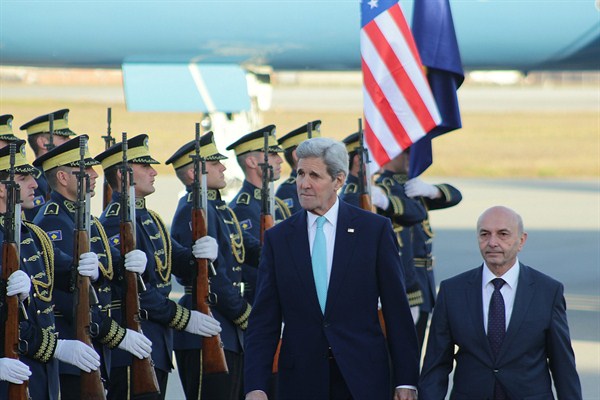U.S. Secretary of State John Kerry’s trip to Kosovo last week was literally a “flying visit”; he didn’t leave Pristina’s Adem Jashari Airport. But that didn’t diminish the significance of the trip, which comes at a delicate time for Kosovo’s government. Prime Minister Isa Mustafa’s administration faces a domestic opposition so enraged that it has resorted to dropping tear gas in parliament, and a sharp worsening of relations with Serbia. Kosovo has also seen a larger proportion of its citizens join the self-proclaimed Islamic State than any other country in Europe, with high unemployment and disillusionment with mainstream politics making too many young people susceptible to radicalization.
Kerry said his visit was intended to underscore continued U.S. commitment to Kosovo’s independence. Kosovo is still not recognized by the U.N., largely thanks to a Russian veto, nor by five members of the European Union, which Kosovo aspires to join. At the airport, Kerry also touched on the many challenges that Kosovo faces, including fighting extremism and corruption, the controversial process of normalizing relations with Serbia, addressing unresolved war crimes—and the unruly parliament.
In April 2013, Pristina signed a deal with Belgrade on the normalization of relations known as the Brussels Agreement, under the tutelage of the EU. Normalization has proceeded in fits and starts since then, although Bekim Collaku, Kosovo’s minister for European integration, remains optimistic. “Kosovo remains fully committed to its charted course toward consolidation, development and fulfilling its Euro-Atlantic aspirations,” says Collaku. “There are moments when more challenging issues appear along the way, but we deal with them, and overcome them.”

